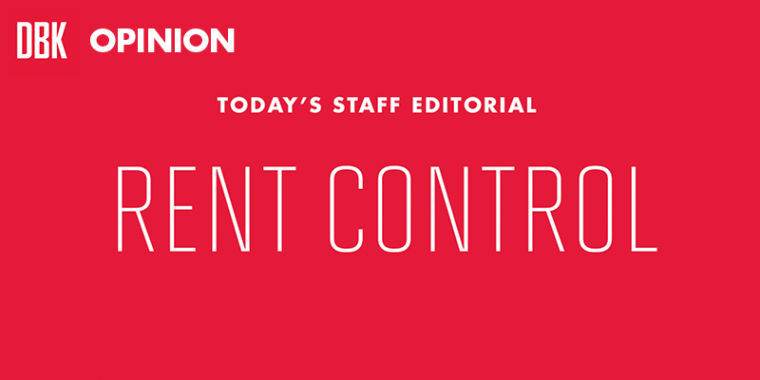
[PIC] Staff ed – Rent
In light of the growing number of residential construction projects occurring on and off the campus, finding affordable housing remains a daunting issue students have to face. For a large portion of the campus community, living in off-campus houses or apartments is the slightly better alternative to paying sky-high rent for on-campus housing.
But this could all come to a change. Last week, College Park officials voted to allow a rent-control ordinance to expire by a 5-3 margin. This ordinance, which originally passed in 2005, caps rent for single-family homes at $2,542 per month. The cap stemmed from two main reasons: To prevent students from getting ripped off by landlords overpricing rent and to deter landlords from turning homes into rental properties.
City homeowners seem to be the most vocal opposition to the city’s decision, claiming that phasing out rent control by Sept. 1 will only bring in more landlords seeking to buy and rent out properties to students to capture higher profits. To them, this increase in potential landlords also means an increase in the number of college students becoming their next-door neighbors — and noise and partying potentially becoming an issue.
But even considering the community’s concerns, the city made the right decision in letting the ordinance expire.
First, the need for an ordinance has already been appeased by the increase in student housing construction throughout the city. Councilman Robert Day said the amount of beds on the campus has increased by more than 1,500 since 2005, while an additional 4,500 have been added to the city overall. Because the quantity of bedrooms supplied has increased, prices of rent throughout the area should be expected to stabilize.
Though rent in a college town will always be a major concern, increased construction has helped decrease the need for the city to aggressively intervene in matters between landlords and tenants.
As for the concern that the expiration of the ordinance will lead to rowdy student neighbors rather than adult homeowners, research shows that rent control actually decreases the quality of housing and causes housing shortages.
If landlords were subject to a rent ceiling lower than the actual market value of the house, they would not have an economic incentive to maintain the quality of the residence.
In addition, rent control could allow certain individuals to benefit more than others who may need the housing more. For instance, one individual could pay for a single-family home because it’s rent-controlled and has a cheaper price, but perhaps there’s another family in the area with a higher need for that amount of space and willing to pay a higher price for it.
Regardless of economic theory, the rent stabilization ordinance is not as necessary as it was in 2005, when several new residences we call home in the city weren’t even constructed yet.That said, completely ignoring future rent prices in the city should not be the solution. To continue protecting the interests of students, the city should allow the ordinance to expire but put safeguards in place to check the power landlords have over tenants.
There’s no doubt we enjoy seeing new construction projects sprouting throughout the city. However, this doesn’t mean we want to settle and allow landlords to be completely free from responsible government oversight.



